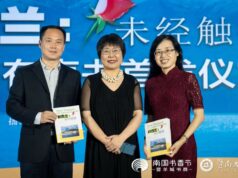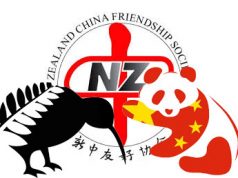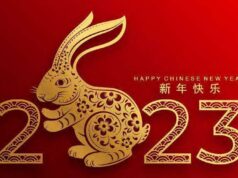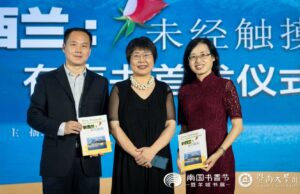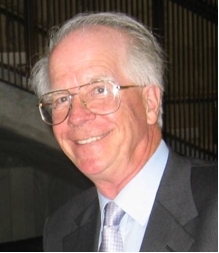
This will be my last annual report as President of the Branch. Later I will make some general comments about the Branch and the challenges and opportunities it faces. But before I do that, I should report in the usual way on the year’s activities. I believe it’s been a busy and successful year for the Branch. Month by month:
April – Zealandia: Our Continent Revealed – Dr Hamish Campbell of GNS Science
May – The Environmental Delegation to China 2016 – Deborah Robertson
June – The National Conference: Thoughts, Lessons, and Ways Going Forward – Kirk McDowall
July – Ten years, Fifty Lunches, and Enough Banquets, Meetings … To Last a Lifetime – Chris Lipscombe
August – Ten Years in Beijing – Carl Worker, recently New Zealand Ambassador to China. (Our meeting this month was hosted jointly with the NZ Institute of International Affairs.)
September – Teaching Chinese from Cook Strait to the Bay of Plenty – the Director and staff at the Confucius Institute, VUW, and several Mandarin Language Assistants
October – The Art of Chinese Calligraphy – Mr Shen Ming of the Chinese Embassy
November – a planned talk by Helene Wong on Being Chinese: A New Zealander’s Story had to be postponed because of Wellington’s earthquake that month
January 2017 – the Society held its annual New Year Banquet. It was attended by members and friends and special guests included Mr Guangzhou Qu, Deputy Head of Mission at the Chinese Embassy, Mr Jian Yang, Member of Parliament, Hon Philip Burdon, the Society’s Patron and Dave Bromwich, National President. Overall, attendance was excellent and a highlight, as always, was the Quiz organised by members of our Committee.
I need to express my appreciation to several people, all of whom have made significant contributions to the Branch during my time as President. Some of them have been contributions considerably more valuable than mine. First, Christine Strickland. For the first two years of my presidency, Christine was vice-president and she guided me skilfully and tactfully. Christine’s knowledge of the Friendship Society and her commitment to promoting its goals successfully are unequalled. She has not held office in the Branch since she insisted on retiring from the vice-presidency but has not been able to resist making her time and skill and wisdom available. It has been very much appreciated.
Now I understand Christine and I are to be “Honorary Advisers” to the Branch. I don’t know exactly what this means. Hopefully that when the Honorary Advisers offer advice it has to be followed!
Luke Qin has been vice-president this past year. He spent a large part of it arguing that he should not succeed me as branch president. But gradually he took on more and more of a leadership role until eventually I was able to say that for him to become president would really only involve a technical change because he was doing so much already. I am so pleased that in the end he agreed. I am quite sure that the branch will have a bright future under Luke’s presidency.
There are several members of the Committee who have made an enormous contribution to the functioning of the Branch. I won’t single any of them out because that would not be fair to others. The commitment and involvement of an active committee is crucial for the branch and I urge them all, and any new committee members, to keep it up.
I would also like to say a word about our relations with the Chinese Embassy in Wellington. From Ambassador Wang Lutong, through his deputy Mr Qu Guangzhou and the cultural section comprising Mr Shen Ming and Ms Zheng Lin, the Branch has had continuing valuable support. We appreciate that and I know that the Branch will hope that it continues for many years to come. And we do need to remember that the Society’s relationship with the Embassy needs to be handled respectfully on both sides. Just as we know we cannot take their support for granted, they know that we are a fully independent Society.
A theme which I’ve tried to prioritise throughout my period as President is the need to attract and involve younger New Zealanders in the Society. I believe we have been reasonably successful. Longstanding members have given their support but we have really only been successful because of the enthusiasm and energy of younger members themselves. It would be invidious to single out any particular individuals in this area. But with one exception – someone whom I can name because he’s now off to Xiamen and no longer on our Committee – has been Kirk McDowall. I hope Kirk sees this because I do want to record the real debt we all owe to him. His efforts have been crucial.
Looking ahead, I believe it will be crucial that the Branch listens to the views and suggestions of newer members because getting and keeping their interest will require ongoing work. Inevitably there will be more turnover among younger members as they work through university courses or focus on new careers. In seeking to attract new members we need to bear this in mind and find appropriate ways of attracting their interest.
At the same time, I suggest the Society as a whole faces a significant new challenge. Our retiring Patron, the Hon Philip Burdon has spoken about this and called for careful thought about the appropriate role of the Society in today’s New Zealand.
Several decades ago, when the Society was founded, both China itself and New Zealand’s relations with China were vastly different from the situation today. Then, China had minimal relations with the outside world, especially Western countries like New Zealand. And in NZ itself earlier prejudices regarding Chinese people were compounded by the post-World War II antipathy towards communism. In many ways, the Society was a lone and often unpopular voice raised against government policies and public antagonism towards China.
The primary Objects of the Society today continue to be to “promote friendship, understanding and goodwill between the peoples of China and New Zealand …” But the environment in which we seek to pursue those aims has totally changed. Today the Society is one of many voices and even the government now takes broadly the same line. Should we just carry on as if nothing has changed? Surely that wouldn’t be sensible.
One option would be to become more involved in the trade and commercial relationship between New Zealand and China. Or perhaps more involved in the official relationship between the two countries. I would argue against both of those options. Already the government and some of our largest trading organisations are putting enormous effort into the economic relationship with China. Similarly, our government puts significant resource into promoting the official or political, bilateral relationship. But successful economic or political relationships can’t exist in isolation. “Friendship, understanding and goodwill” are important in their own right but they are also an essential foundation for a successful overall relationship.
I believe therefore that the role of the Society in promoting friendship, understanding and goodwill between the peoples of China and of New Zealand remains relevant and crucial. With so much happening in the relationship, I believe the Society must very carefully judge every possible activity it might pursue against the test whether it would promote ‘friendship, understanding and goodwill’.
I hope that in the year ahead you might take time to consider carefully that test of ‘friendship, understanding and goodwill’, and how rigorously it is being applied. For example, we do a lot in people-to-people exchanges and they are clearly vital. But do we do enough in the cultural area, or historically or academically? These are the kinds of questions you might consider.
Thank you for all the help I have received
And best wishes for the future
Michael Powles


